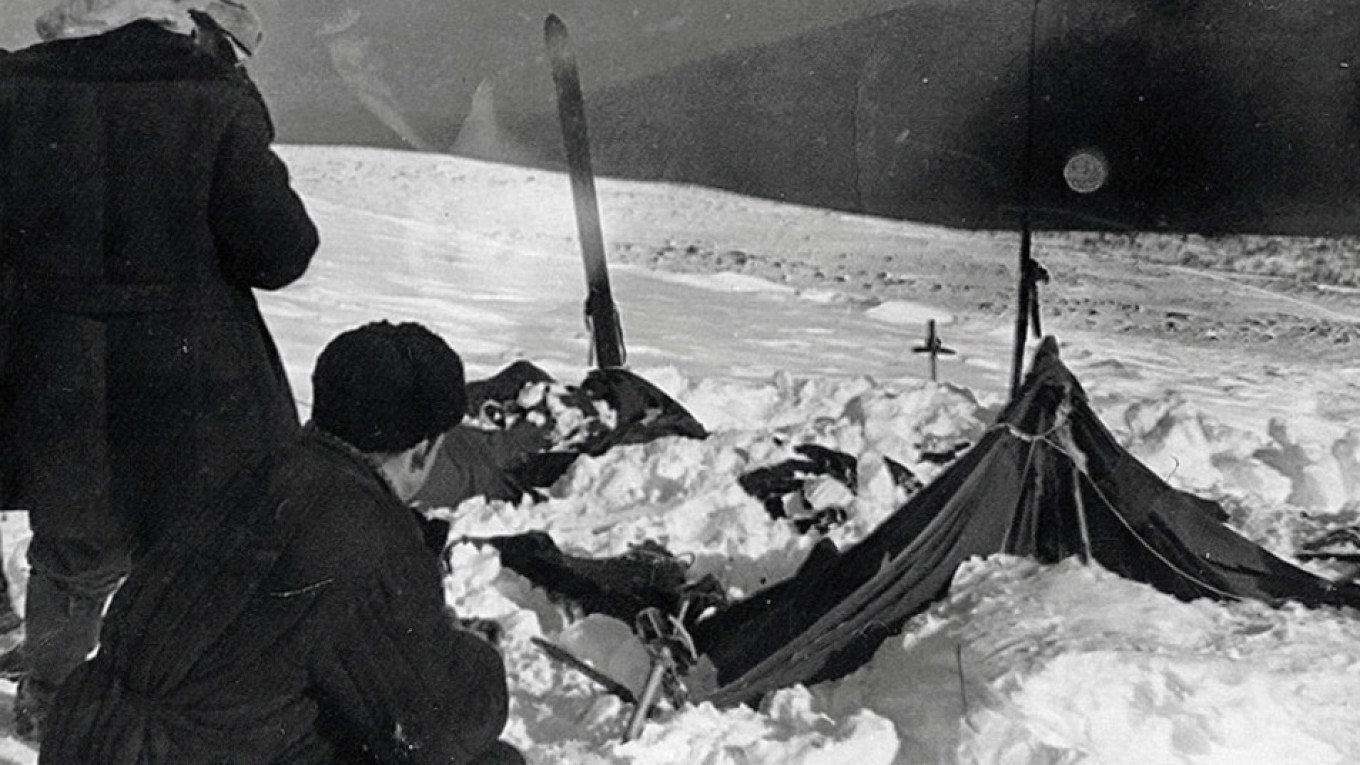The mysterious deaths of nine young hikers in the winter of 1959 at a remote pass in the Ural mountains has fascinated Russia for decades and spawned countless theories from aliens to a botched nuclear test.
Now research published Thursday in the journal Communications Earth and Environment has added weight to a natural explanation for the deaths of the experienced mountaineers, whose frozen bodies were found scattered across the snowy landscape, some with terrible injuries.
With no survivors and several questions left unanswered, doubts over the "Dyatlov Pass Mystery" have lingered despite an official inquiry that last year ruled the students had died in an avalanche.
The new research suggests that a combination of factors — including a cut made into the snow when the trekkers pitched their tent and a build-up of snow by strong, icy winds — triggered a delayed avalanche that drove the students outside into temperatures of minus 25 degrees Celsius (minus 13 Fahrenheit).
"Several parts of the Dyatlov Pass Mystery will never be explained, because no one survived to tell the story," said co-author Johan Gaume, who heads the Snow Avalanche Simulation Laboratory at EPFL in Switzerland.
Conspiracy theories
On the night of February 1, 1959, hikers led by Igor Dyatlov set up camp on the slope of the Kholat Saykhl, "Dead Mountain."
At some point after midnight something unexpected caused expedition members to cut their way out of the tent and escape towards a forest, more than a kilometer downslope, without appropriate clothes.
Some of the bodies were found strangely discolored or had missing eyeballs. Others had internal injuries but no outer signs of trauma. One man's body registered a high level of radiation, while one woman's tongue was missing.
A criminal case was opened and closed soon after. It remained classified until the 1970s.
The Dyatlov Pass incident became one of Russia's greatest mysteries, inspiring numerous books, documentaries and feature films dedicated to the tragedy.
Among the different theories circulated over the decades were an attack by a yeti-like creature, an explosion caused by a secret weapons test, falling rocket debris, or even some unknown psychological force that drove the hikers to kill each other.
Gaume said he was first made aware of the story in 2019, when he was contacted by a journalist about the decision to reopen the case.
"I got truly fascinated," he told AFP.
He teamed up with Alexander Puzrin, a professor at ETH Zurich, who had experience in forensic geotechnical investigations.
'Brutal force'
Prosecutors last year concluded that the group was killed by an avalanche and found that most had died of hypothermia.
But questions remained.
These included how an avalanche could have happened on such a slight slope; how it could have been triggered hours after the tent was pitched; and why several of the group had traumatic injuries not normally seen in avalanches.
The researchers created an analytical model to look at slab avalanche release under the environmental conditions in which the mountaineers set up their tent.
Their analysis suggests the hikers could have unknowingly set up camp — hacking a ledge into the frozen ground for shelter — on a weak layer of snow.
During the night, winds may have deposited more snow in a slab above the tent and researchers estimate the avalanche could have been triggered between 9.5 and 13.5 hours after the hikers set up camp.
The study also used simulations of the injuries — taking into account that the hikers would have been lying down when the incident happened — and found they fitted with the autopsy reports.
Gaume said the study was "the most exciting case I ever worked on.”
"We felt like detectives!"
He stressed however that the researchers do not claim to have solved the mystery.
"I think it is also a great story of courage and friendship in the face of a brutal force of nature," he said.
A Message from The Moscow Times:
Dear readers,
We are facing unprecedented challenges. Russia's Prosecutor General's Office has designated The Moscow Times as an "undesirable" organization, criminalizing our work and putting our staff at risk of prosecution. This follows our earlier unjust labeling as a "foreign agent."
These actions are direct attempts to silence independent journalism in Russia. The authorities claim our work "discredits the decisions of the Russian leadership." We see things differently: we strive to provide accurate, unbiased reporting on Russia.
We, the journalists of The Moscow Times, refuse to be silenced. But to continue our work, we need your help.
Your support, no matter how small, makes a world of difference. If you can, please support us monthly starting from just $2. It's quick to set up, and every contribution makes a significant impact.
By supporting The Moscow Times, you're defending open, independent journalism in the face of repression. Thank you for standing with us.
Remind me later.






